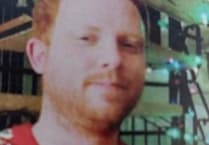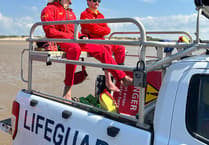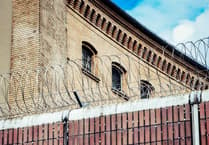The number of hoax calls made to the Welsh Ambulance Service (WAS) has soared by 37 per cent in the last three years, a new investigation has revealed.
Fresh figures obtained by Medical Negligence Assist have found that ambulance crews in the region have wasted more than 700 hours responding to hoax calls since 2021.
What’s more, during that time ambulance crews made a total of 463 face-to-face responses to calls that turned out to be time-wasting hoaxes.
The service has also revealed all the areas in Wales where hoax calls received an ambulance response in the last year.
Between April 1, 2021 and March 31, 2022, the service received 334 hoax calls, and responded to 84 hoax incidents face-to face.
The following year, 373 calls were made as well as 85 incidents which resulted in an in-person response from WAS crews.
In 2023/24, the figures rose again with 457 hoax calls received and a staggering 163 more face-to-face responses that proved to be malicious.
Between April 1, 2024 and October 31, 2024, another 345 hoax calls were made to WAS and crews responded in-person to another 131 hoax incidents.
The service confirmed that the total time it has spent responding to hoax or malicious calls and incidents in the last three years amounts to a whopping 701 hours - that’s equivalent to 29 days of valuable ambulance time.
For the last year alone (August 2023 to September 2024), the highest number of hoax incidents which resulted in an ambulance response from WAS came from Cardiff - which logged 22 hoax calls.
Pembrokeshire had 11, and Carmarthenshire 6.
Speaking on the issue in October, Darren Farmer, Director of Ambulance Operations for London Ambulance Service, said:
“Hoax calls to 999 are a criminal offence because they threaten lives. Every hoax call we attend takes valuable resources away from genuine emergencies and can delay ambulances reaching patients with a life-threatening illness or injury.
“We work with the police to prosecute where possible as this behaviour is completely unacceptable and callers can face imprisonment or a fine.
“If a caller repeatedly impacts our ability to answer calls we can stop them from connecting to emergency services for 8 hours. However, we have to treat every 999 call as genuine until we can rule it out.”
In the run-up to one of the busiest times of the year for health services, South Central Ambulance Service and its partners have urged the public to “think now” about what services they might need.
Tracy Redman, assistant director of operations for Hampshire at SCAS, said: “With all the options available for urgent care, I would really encourage people to think now about what services they might need, and how to access them. This will help our teams help those people suffering life-threatening emergencies who really need us this Christmas when they call 999.”
Over the peak two-week Christmas and New Year period last year, SCAS revealed it received just over 29,000 calls to its 999 services. That averages around 86 calls to 999 every hour, or more than one every minute for the entire festive period.
Delays in ambulance responses can potentially cost lives and if you’ve suffered harm as a result of a delay, you could claim compensation. Medical Negligence Assist provides free advice on these types of cases.
They operate a free 24-hour helpline and live chat which you can access on their website.





Comments
This article has no comments yet. Be the first to leave a comment.